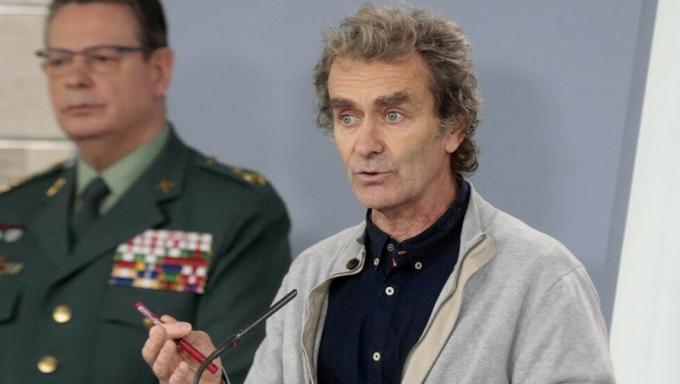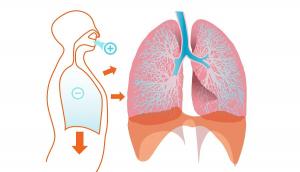Coronavirus: What are governments doing to alleviate the health crisis?
The official declaration of Pandemic by the who has provided the necessary message to reinforce decisive actions to respond to the proliferation of COVID-19 in all the countries, even the hundred of them that have not yet been taken for granted.
With the limited means available to it, the WHO, its scientists, has been essential to activate the measures underway to limit and slow the spread of the coronavirus, and for others that should be taken. Its function, the most it can do, is precisely to alarm: we are facing a serious epidemic that is spreading worldwide and we still do not have an effective treatment. It should be noted that the WHO, even at the risk of being classified as an alarmist, has long raised the alarm, from the beginning and, as is often the case, the who then did not listen, who also criticized the measures in the face of other alarms that fortunately did not go further, they are the ones who now accuse her of passivity.
Now, the WHO will also insist on the importance of detecting the maximum number of affected and the establishment of additional measures.
WHO insists: we must continue to fight the virus with drastic measures
And that more efforts should be devoted to resources to face possible new waves. The fact is that the (inevitable) officialization of the pandemic cannot lead to any conformity or inaction, as it seems (they seemed) to consider Nor are we discouraged because the examples of China and South Korea show that this virus can be fought and controlled, based on various strategies different. The first, social distancing, including the widespread home quarantine that we now face, seems the most limiting, although there is no doubt that it has been effective in China. Another, the one followed by South Korea, with an aggressive approach from the beginning, aimed at identifying the largest number of cases. Possible positives, including the earliest stages, even using mobile units to search for positives in people with symptoms very mild, to be able to isolate them early at home, together with specific measures for the elderly, implying a deployment of resources.
We can think that this system is the most demanding in terms of resources and organization, and the most efficient, in the sense that a more accurate picture of the situation, with a death rate of less than 1%, and which has managed not to saturate the system sanitary. But the point is that South Korea, unlike Europe, was prepared to act decisively from the start., not only because of having closer the first focus of China but also because of the experience of having faced the MERS (Middle East respiratory syndrome) last year, which here went largely unnoticed by the population general. Above all they have been brave, ignoring the impact of new technologies and social networks, which implies being able to know if your partner or your neighbor have the virus when the situation is not perceived as alarming, something that in Europe would have generated serious objections. Probably now here it is already more manageable.
Spain: acted late, but acted appropriately
Thus, as an observer of how we are doing in our country, we are acting appropriately, not only in our community that has gone as far as possible, but in the Spanish team, with a now aggressive approach, focused on a strategy of social distancing, which in the short term can be hardened, and which, possibly, can be progressively complemented with South Korean strategy. It is clear that not all governments have taken the threat seriously enough, but this is not the case in Spain, where we already have accumulated sobering experiences. In addition, we have had the advantage of being behind the Asian countries and Italy and together with others. such as Germany and France, whom we have already overcome in cases and who are already taking action Similar.
It is clear that the current measures are not the result of improvisation but a response that, until now, has been reasonable and correct in our community., with the means and skills available, based on scientific knowledge and proportional to a situation that evolves and will continue evolving in a matter of a few days, for a few weeks and with an eye also to the different alternatives and waves that are possible in the future.
It has been repeated and it is true, the importance of maintaining tension and complying with these days of confinement in our homes. Let's hope that this way we can successfully complete this strategy of social distancing, with generalized confinement, surely longer than what is marked by the legislation on which it is based, perhaps less in some communities with fewer cases, and also thinking that, as soon as possible, we will complement it with other strategies, such as the massive search for those affected, an increasingly selective confinement, and progressively moving to a more controlled stage in which the immunizing (hopefully) a significant part of the population, and the most serious cases, currently older people but not only, will be able to continue receiving the best healthcare.

The investigation progresses
On the plates of the balance we can remember other favorable data: we know the C coronavirus that causes the COVID-19 disease; it took less than a week to identify him and a few more days to sequence his genome; we know how to detect it, the available methods are very useful and affordable, and further progress is being made in developing others even faster (a few minutes); it presents mild symptoms in the majority of cases, although with a high mortality rate in very old people or those who cope with other health problems; most patients are cured, the virus is inactivated relatively easily with hand washing, with water and soap or with hydroalcoholic gels (mixtures of 75º alcohol with glycerin) if you do not have soap and water available hand; treatments based on diluted bleach or other disinfectants for surfaces, etc., are affordable.
In addition, there are quite a few clinical trials underway with antivirals and although the vaccines will take time, several are already being worked on. prototypes, in addition to the scientific research of all kinds that is being developed and about which, once again we remember what provision of resources for R&D activities is essential.
We have above all the best professionals in health, with a heroic effort and often limited means, which excites us. to all, and with initiatives such as that of the students of the Faculty of Medicine, infecting their colleagues from other faculties and schools, spontaneously organizing themselves as available and prepared reinforcement in this phase of reinforced containment, if considered necessary. The main problem facing now remains that of limiting or slowing down the spread, avoiding the accumulation of serious cases in short periods of time, which exceed the response capacity of our system sanitary. We will soon see a decrease in the rate of expansionWe must also think beyond this wave, since, although we are in the midst of an epidemic here, globally it has only just begun.

